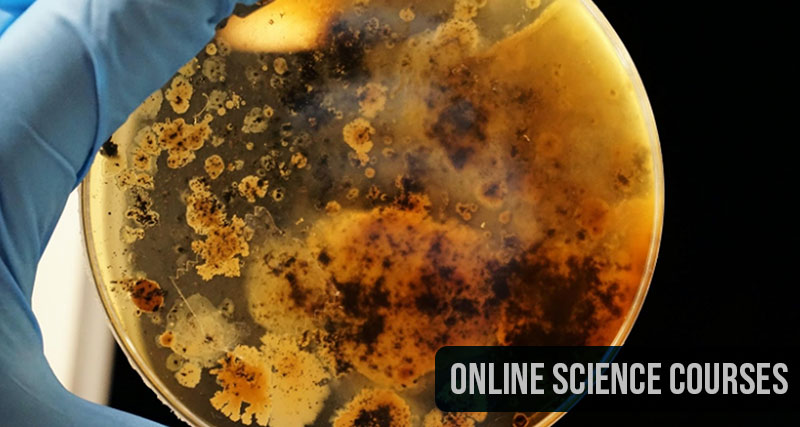7 Best Online Science Courses For Students
Online learning is open to all, from students to retirees and keen amateurs. It has never been easier to find world-class instructions and education online. Most of the time, these courses are available free-of-charge, with some institutions offering a certification process for an extra fee.

While this extra cost may put some students off, it may interest them to know that some MOOCs (that’s ‘massive online open course’ for those who don’t know) actually can count as valid college credit.
If you’re an essay writer or a mathematician, these online science courses present challenging ideas all from the comfort of your laptop.
1. Introduction to Complexity, hosted by the Santa Fe Institute
Complexity is a fascinating field. Complex systems are found everywhere and studied in many disciplines. They’re of as much interest to physics students as social science students. Delivered by the Santa Fe Institute, students who enroll in this course will be receiving knowledge from field-leading thinkers and scientists.
The Institute dedicates itself to understanding the principles behind what they call ‘complex adaptive systems’; it’s a slightly bizarre but engrossing field of study that may change your life or cause you to break down in hysterics. Either way, it is certainly worth a look.
2. Mathematical Economics, hosted by Doon University
Finance and big business run on complex mathematics. Enrolling in this course from Doon University may open up a future filled with private jets and million-dollar bonuses. Or you could seek to destroy a corrupt system from the inside with your new knowledge.
Regardless of your stance, knowledge is power, so why not earn some more power through this insightful course. You’ll be ready to top the science olympiad tables in no time.
3. Introduction to the Philosophy of Physical Sciences, hosted by the University of Edinburgh
Philosophy, that’s a tricky one. In recent years, that is to say, the last 300 years, philosophy has ceded its position over understanding the natural world to science. Physical science is the study of non-living things as opposed to the life sciences, like biology, which deals with living.
But where is the line of living and dead? Even the most ardent bachelor of science students might find their views challenged by this course’s ideas, brought kindly to us by the University of Edinburgh.

4. Science Literacy, hosted by the University of Alberta
Fake news is everywhere today, and it is obscuring good science. For students who are engrossed in scientific study, they may find it easy to parse and deal with the propaganda that fills the internet and airwaves. However, students lacking some scientific background may find all the statistics and arguments beyond their current abilities.
Science Literacy, hosted by the University of Alberta, offers students a course that will enable them to sniff out lies and understand how the process of science works in the 21st century. An essential course for any student who feels frustrated at the state of communications.
5. Introduction to Food and Health, hosted by Stanford
Similar to the previous entry in this list. Introduction to Food and Health offers students a scientific perspective on a topic that is prone to exaggeration and embellishment. Think about all those fad diets that come and go, how the trends on social media seem to dictate health more than our physicians and nutritionists.
How often have you heard the benefits of a novel superfood touted by a person you know failed high school biology? How often have you thought about what you’re eating is doing to your heart, lungs, kidneys? The answers may seem obtuse without a good ground in science. This course, presented by Stanford, offers students a means of understanding this essential issue.

6. Epidemics – the Dynamics of Infectious Diseases
We’re all aware of the devastating effects infectious diseases have on society and economies. The coronavirus crisis may have sparked an interest in public health that you previously were unaware you had. At the same time, medical school is expensive; this free MOOC (like all the others in this list) offers students a chance to experience a scientific education without any cost to themselves.
The University of Pennsylvania hosts this course on epidemics. It covers biology, microbiology, the development of vaccines, the role of public health in society.
7. Methods and Statistics in Social Sciences
Statistics are hard! Many students grow weak at the thought of conducting quantitative analysis. It’s good then that the Methods and Statistics in Social Sciences course, brought to us by the University of Amsterdam, is such a life-saver. Learning the foundations of data analysis and statistical inference from a world-class institute is a godsend.
It’s been popular for a while on Coursera and designed for beginners; it is ideal for brushing up on statistics if you’re returning to academia after a few years (or simply missed the courses during your earlier years of studying).
Those are our top picks of science MOOCs for students. There are a whole lot more available, hundreds if not thousands, all at the press of a button.

































































































